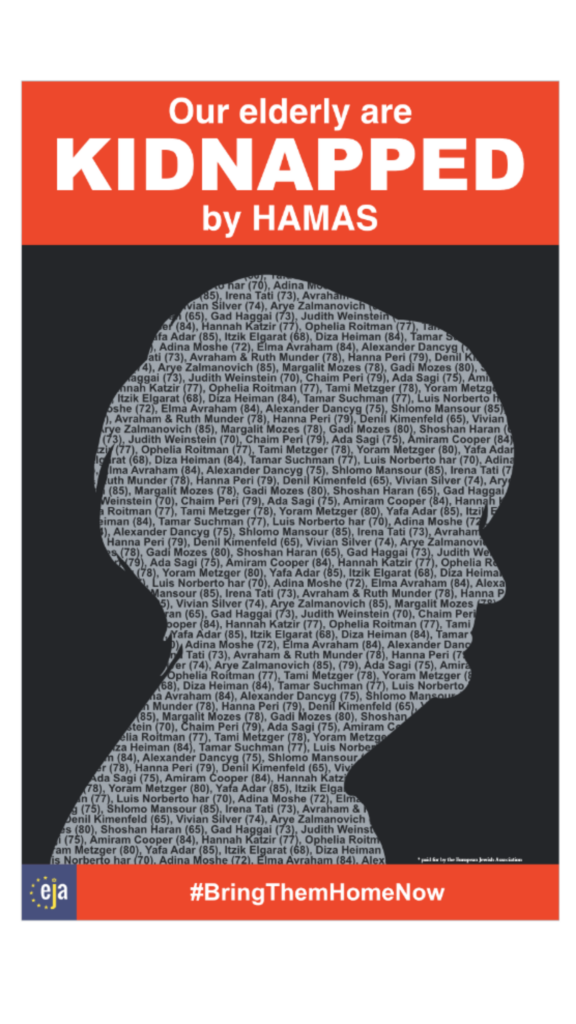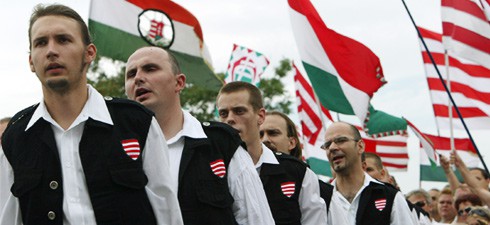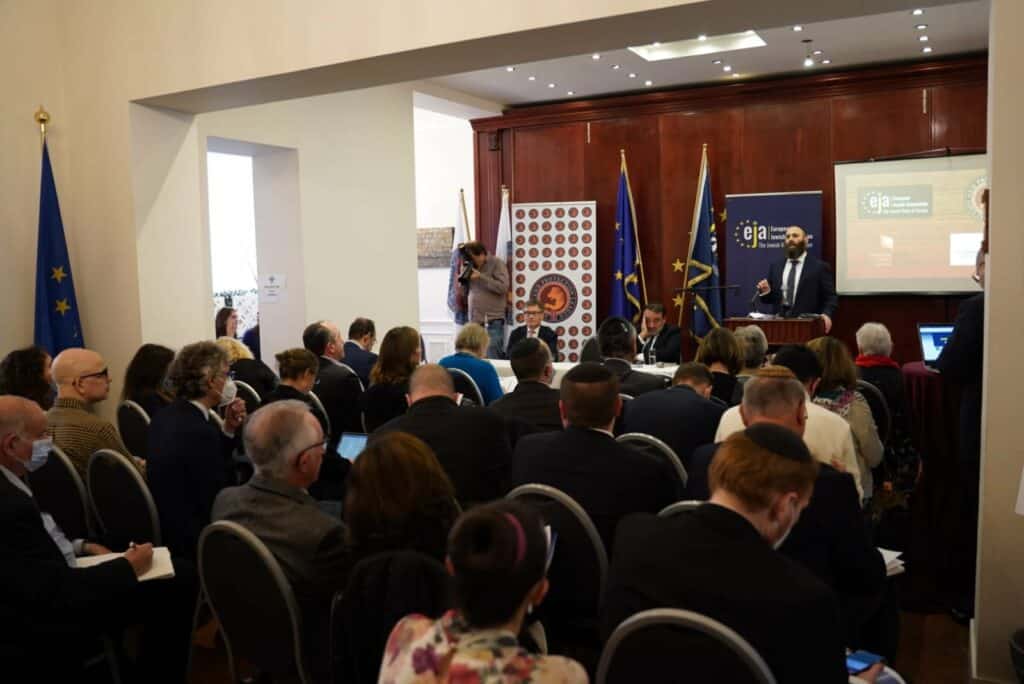ZAGREB: Hungary’s prime minister declares that the “color” of Europeans should not mix with that of Africans and Arabs. His Polish counterpart claims Jews took part in their own destruction in the Holocaust. And the Croatian president has thanked Argentina for welcoming notorious pro-Nazi war criminals after World War II.Ever since World War II, such views were taboo in Europe, confined to the far-right fringes. Today they are openly expressed by mainstream political leaders in parts of Central and Eastern Europe, part of a global populist surge in the face of globalization and mass migration.
“There is something broader going on in the region which has produced a patriotic, nativist, conservative discourse through which far-right ideas managed to become mainstream,” said Tom Junes, a historian and a
researcher with the Human and Social Studies Foundation in Sofia, Bulgaria.
In many places, the shift to the right has included the rehabilitation of Nazi collaborators, often fighters or groups celebrated as anti-communists or defenders of national liberation. In Hungary and Poland, governments are also eroding the independence of courts and media, leading human rights groups to warn that democracy is threatened in parts of a region that threw off Moscow-backed dictatorships in 1989.
Some analysts say Russia is covertly helping extremist groups in order to destabilize Western liberal democracies. While that claim is difficult to prove with concrete evidence, it is clear that the growth of radical groups has pushed moderate conservative parties to veer to the right to hold onto votes.
That’s the case in Hungary, where Prime Minister Viktor Orban and his Fidesz party – the front-runner in the April 8 elections – have drawn voters with an increasingly strident anti-migrant campaign. Casting himself as the savior of a white Christian Europe being overrun by hordes of Muslims and Africans, Orban has insisted that Hungarians don’t want their “own color, traditions and national culture to be mixed by others.”
Orban, who is friendly with Russian President Vladimir Putin, was also the first European leader to endorse Donald Trump in the 2016 U.S. presidential race. In 2015, he erected razor wire at Hungary’s borders to stop migrants from crossing and has since been warning in apocalyptic terms that the West faces racial and civilizational suicide if the migration continues. Orban has also been obsessed with demonizing the financier and philanthropist George Soros, falsely portraying the Hungarian-born Holocaust survivor as an advocate of uncontrolled immigration into Europe. In what critics denounce as a state-sponsored conspiracy theory with anti-Semitic overtones, the Hungarian government spent $48.5 million on anti-Soros ads in 2017, according to data compiled by investigative news site atlatszo.hu.
In a recent speech, Orban denounced Soros in language that echoed anti-Judaic cliches of the 20th century. He said Hungary’s foes “do not believe in work, but speculate with money; they have no homeland, but feel that the whole world is theirs.”
In nearby Poland, xenophobic language is also on the rise. When nationalists held a large Independence Day march in November, when some carried banners calling for a “White Europe” and “Clean Blood,” the interior minister called it a “beautiful sight.” Poland’s government has also been embroiled in a bitter dispute with Israel and Jewish organizations over a law that would criminalize blaming Poland for Germany’s Holocaust crimes.
With tensions running high in February, Prime Minister Mateusz Morawiecki listed “Jewish perpetrators” as among those who were responsible for the Holocaust. He also visited the Munich grave of an underground Polish resistance group that had collaborated with the Nazis.
In the same vein, an official tapped to create a major new history museum has condemned the postwar tribunals in Nuremberg, Germany, where top Nazis were judged, as “the greatest judicial farce in the history of Europe.” Arkadiusz Karbowiak said the Nuremberg trials were only “possible because of the serious role of Jews” in their organization and called them “the place where the official religion of the Holocaust was created.”
Across the region, Muslims, Roma, Jews and other minorities have expressed anxiety about the future. But nationalists insist they aren’t promoting hate. They claim they’re defending their national sovereignty and Christian way of life against globalization and the large-scale influx of migrants who don’t assimilate.
The Balkans, bloodied by ethnic warfare in the 1990s, are also seeing a rise of nationalism, particularly in Serbia and Croatia. Political analysts there believe Russian propaganda is spurring old ethnic resentments.
Croatia has steadily drifted to the right since joining the EU in 2013. Some officials there have denied the Holocaust or reappraised Croatia’s ultranationalist, pro-Nazi Ustasha regime, which killed tens of thousands of Jews, Serbs, Roma and anti-fascist Croats in wartime prison camps. In a recent visit to Argentina, President Kolinda Grabar-Kitarovic thanked the country for providing postwar refuge to Croats who had belonged to the Ustasha regime.
The world’s top Nazi hunter, Efraim Zuroff of the Wiesenthal center, called her statement “a horrific insult to victims.” Grabar-Kitarovic later said she had not meant to glorify a totalitarian regime.
In Bulgaria, which holds the EU’s rotating presidency, the government includes a far-right alliance, the United Patriots, whose members have given Nazi salutes and slurred minorities. Deputy Prime Minister Valeri Simeonov has called Roma “ferocious humanoids” whose women “have the instincts of street dogs.”
Junes, the Sofia-based researcher, said that even though hate crimes are on the rise in Bulgaria, the problem has raised little concern in the West because the country keeps its public debt in check and is not challenging the fundamental Western consensus, unlike Poland and Hungary.
While populist and far-right groups are also growing in parts of Western Europe, countries like Poland and Hungary are proving more vulnerable
to the same challenges, said Peter Kreko, director of Political Capital Institute, a Budapest-based think tank.
“In younger, weaker, more fragile democracies,” he said, “right-wing populism is more dangerous because it can weaken and even demolish the democratic institutions.”
The article was published on The Daily Star















